#paulo pereira
Explore tagged Tumblr posts
Text
Programa Sons do Brasil recebe Paulo Pereira e Swami Jr.
Koka, Shiga, Japão, 09 de julho de 2024 – Rádio Shiga – O programa Sons do Brasil, em sua 480ª edição, receberá o músico e compositor Paulo Pereira, natural de Fortaleza (CE) e radicado em Embu das Artes (SP). Pereira falará sobre sua trajetória musical, desde os primeiros passos tocando na noite paulistana até o lançamento de seu álbum “Quixote”. Durante a entrevista, o artista compartilhará…
0 notes
Text
Paul Perry, or Paulo-Juarez Pereira, a CIA-Connected Moonie


▲ ▲ Both pictures: Pereira speakings to soldiers in South America during his CAUSA years
Many organizations associated with the Unification Church have been linked to US intelligence agencies and the military, whether through volunteer cooperation or contracted work. Individual members also have been linked to these institutions, most infamously Bo Hi Pak, who was said to be the head of KCIA agents in the US and played a leading role at the KCIA for decades, as well Paul Perry, Juan Sanchis, Tom Ward, and countless others. These individuals have been accused of engaging in covert operations that include drug trafficking or aiding coups and paramilitaries, collecting intel on both fascist/right-wing and left-wing organizations, and broadly working with the US government to further its interests. Perry, or Pereira, is one of the most intriguing cases, with countless connections and allegations, and yet little recorded history of his life, outside of his own blog and a recent video series he did with Sanctuary Church members. Interestingly enough, some of the details of both his presentations of his life story do not quite match, with some details having changed over the last decade.

▲ Pictured: Pereira at the Seventh Symposium of ICUS Professors. Pereira is in the middle row in a white shirt and tie at the center. In the past decade, Perry has re-emerged in social media, connecting to church members. He became especially active after the death of his ex-wife. At this time, he began blogging about his life. Since the pandemic, he has become somewhat active in Hyung Jin’s Sanctuary community. This is likely more due to social and political reasons than theological or spiritual. According to Perry, it’s where the Holy Spirit just led him, and he agreed with their values and politics. He finds their political valuable and wanted to participate in it himself. He admires Hyung Jin Moon for being a patriot. But ultimately, he likes the group. He likes that it feels like a group--that people support each other and are connected to one another.
His testimony regarding his conversion to the Unification Church in 1970 is very similar, mostly testifying to the kind nature of the idealistic members, though he thought they were profoundly naive. No mention of Moon being the messiah, or the revelation of God’s lineage being on earth, or anything like that. Allegedly Pereira's wife is an atheist, and until he turned 75, he was one too. He’s not likely a member of the Sanctuary movement, and has spoken and socialized among various Moonie sects in the past few years. The information below is collected from FOIA documents, Pereira’s own re-tellings of his life story, as well as both church publications found on tparents.org and members’ and ex-members’ recollections and experiences of Pereira. There are a number of unconfirmed allegations, but there is no doubt that Pereira was actively coordinating and cooperating with the CIA, more intimately and perhaps more professionally than other “connected” members.

▲ Pictured: A facebook post from Paulo Pereira where he says he took part in the “effort to win people’s hearts by supporting people’s efforts to liberates themselves from Communism” Paul J. Perry, or Paulo-Juarez Pereira, Paulo Pereira, and sometimes mis-printed as “Paul Berry,” was born in Brazil in 1942. He spent much of his early life receiving a Catholic education in Brazil, studying for the priesthood, even moving to Rome to receive his doctorate. While in Rome studying philosophy during Vatican II he became very close to a number of Americans, who got him involved in a choir. Soon after, though, news of death of John F. Kennedy Jr. reached Pereira, causing him to re-evaluate his path and career. He spent his summer vacation in Ireland, returning to Rome to inform the Church and faculty that he had made his decision to leave the priesthood. His college director suggested he wait another year before making this decision, which he did. Not much is known about this year. In another account, he claims that he realized he had the capacity for romantic love, after an experience of quiet unrequited love in Ireland, and left the priesthood after Vatican II with other priests who were disappointed by the lack of reform around priests getting married. After the year of discernment, he finalized his break with the priesthood and was planning on moving to Germany to continue his education. His American friends, though, strongly encouraged him to move to the United States, even helping with arrangements. Through the help of his friends, he was able to land a job as a trilingual translator and interpreter and International Student Office at the University of San Francisco. He played a vital role in doubling the number of Latin American students, directly recruiting many. According to Pereira, "on February 9, 1965, I landed in New York, in transit to San Francisco." While little is known about Perry's early life, some have claimed he was linked to the CIA while studying to become a priest through a fellow seminarian. Others have speculated that he was not directly recruited into covert work until Tom Ward took him under his wing. Pereira was very close to Bo Hi Pak, known liaison between the KCIA and CIA for many years. That said, there are a number of allegations about Perry’s intelligence activity that has not been confirmed. Though it is clear that Perry developed ties to anti-Castroist activist and Cuban exiles while doing anti-communist work in the Unification Church, some believe these connections were developed even prior to joining the UC. That said, in either 1968 or 1969, after graduating from the University of San Francisco with a BA, using credits from his previous schooling in the Catholic Church. Perry was drafted and served in Vietnam from 1969 to 1970. Perry was in the Air Force. A few months prior to being drafted, he began teaching Portuguese at the Defense Language Institute, often teaching those who would work in Brazil on behalf of the US government, instructing many who worked in intelligence. According to Pereira, by January 30, 1968, he was scheduled to be in Vietnam. In another account, he says by April, “around the Tet Offensive.” That winter he was in Brazil to say goodbye to his loved ones. He didn’t tell them he was on his way to Vietnam because he allegedly did not want to worry them.

From Brazil, he returned to the US, going to Ft. Hood, Texas. As soon as he arrived, he was told his application to be an officer was approved. As a result, all his orders were cancelled. He alleges that this prevented him from going to Vietnam in 1968. He had to work in the United States as a Specialist 4th grade to Second Lieutenant, and be trained as a Field Artillery Communications Officer with the 18th Airborne Corps in Fort Bragg, North Carolina.
Like many of Pereira's stories, as soon as he got to Vietnam, he experienced a miraculous change of course. He was called into the office of the commanding officer within 15 minutes of being in Vietnam. He was afraid of getting in trouble but then pleasantly surprised to hear his commanding officer speak to him in Portuguese. He finds out that the officer was trained at the language school he taught at in Monterey, California, and was in Brazil as a military attache for 4 years. They hit it off and the office invited him to join his social club in Saigon that includes officers and other agents that all spent time in Brazil and spoke Portuguese. They wanted a native speaker in their Portuguese-speaking social club so the officer asked him to come to Saigon. This took him out of his order to be out in the boondocks in northern South Vietnam, and he went to Saigon for “3-6 months”. He became an assistant to the company commander in the 4th Infantry Division. There is likely more to the story regarding his Saigon assignment than he is sharing.
As soon as Perry returned to San Francisco from his duty in Vietnam, he met the Unification Church at the international student center he used to work at. Some Moonies had a band playing at the student center and some members witnessing. Kathy Sato was there, and Pereira considers her his spiritual mother. Apparently she engaged in some classic Bay Area flirty witnessing, inviting him to dance with her. Apparently he won a free trip to Boonville that day. In Boonville he was immediately hooked by the lectures, conversations about building the ideal world, and the loving people. He quickly joined and rose through the ranks of the organization. Despite other members allegedly being wary of him, seeing him as too argumentative, secular, and “horizontal.” Pereira joined when Boonville was still under Papasan Choi’s leadership.
It is believed that Perry had CIA connections coming into the church, and continued to work with these agencies to some degree throughout his involvement with the organization. His central figure after joining was KCIA agent Sang Ik Choi, or Papasan Choi, who was implicated in the infamous Frasier Committee investigation for bribing politicians on behalf of South Korean interests. It has been speculated that Choi knew about Perry’s activities. Moon is said to have given him his mission to Brazil on December 21, 1972. He had been preparing for his mission, with five others, for some time before this.
He received training from Young Hwi Kim and Moon in Belvedere for 10 days before being launched. He asked Pereira to stay a few days longer to edit the speeches Moon delivered to them during their stay to be distributed to members.
He left early on in the new year to be a missionary, rather than Argentina or the Philippines, which were his preferences. In 1965, the first UC missionary was sent to Brazil, Tatsushiko Sasaki, but had little success. Perry’s arrival was not a huge revival, but it did bring in many of his family members, who ardently helped him translate UC documents and texts and lectured seekers with Perry.
Though Pereira did put considerable time into witnessing and church efforts in 1973-1974, he largely depended on his family for support. It seems that he did spent a lot of these years also traveling South America on behalf of WACL and other directions coming from Sang Ik Choi and Moon.
Concerned over his inability to convert permanent members outside of his family, Sang Ik Choi told Perry to report directly to Moon, who he shared his witnessing concerns with. Within two years, a Korean missionary (Hyun Tae Kim) and Japanese missionaries (Toru Nishiwak arrived on May 31, 1975, Tomoichi Sogo in August of 75, and Mr. Koji Ozeki, July 1) came to support Perry’s work, who was often traveling, and the church began rapidly growing.
With these new missionaries came new business ventures, and revival, according to Pereira. He credits Rev. Kim for the spiritual power and direction of that time. Perry did end up bringing in some early members that stayed in the movement through the decades, including Mauricio Baldini and a number of other strong, witnessing, leading members. Though other members had been lecturing and teaching Baldini for awhile, when Pereira was back in town, the two had a conversation regarding the Principle that led Baldini to confirm his faith. He considers Pereira his spiritual father. Baldini is also his nephew. By the late 70s, even more missionaries from Japan arrived. Fatima Cardoso da Silveira was a charismatic lecturer in these early years. AMASA or IRFF became a major effort throughout the Brazilian Church by the late 70s.
As Perry established himself as a missionary in the UC, he also began purchasing real estate and laying the foundations for UC businesses and political organizations. Within a few years, the Brazilian Church had purchased land for training workshops, had holdings and assets in the manufacturing sector, including textiles, and were actively selling ginseng tea to the Japanese community of Sao Paolo. By the 80s, the UC in Brazil owned II Hwa Trade Co., Tong II Custom Tailor Co., II Heung Food Trade Co., World Jewelry Trade Co., as well as Happy World and other businesses.
In 1977, Pereira was back in New York for some time. Before launching into CAUSA, he received “VOC” (Victory Over Communism) training, which had become integrated into the Brazilian Church. In 1980, the International Association of Freedom and Peace was founded, which led the Moonie student movement in Brazil, and an IFVOC chapter was also founded. In 1981, the CAUSA International Conference was held in Rio de Janeiro with three hundred participants. Essential to Pereira’s teachings in the early church recognized that capitalism has its issues but that the primary concern for people today is communism, not capitalism, as communism was a dangerous ideology rapidly taking over nations. Pereira justifies many war crimes committed by the United States with this logic. A consistent theme in Pereira’s political thought even today is that liberation causes may seem worthy but will ultimately fail and become genocidal. It has been alleged that Perry sought to build an “armed church” in Brazil sometime around the 70s-80s. This may have been to protect themselves from the violence of critics. Many UC members in Brazil remember 1981 as a year of great persecution, when fourteen UC centers were raided and/or attacked, six were set on fire, with five of them burning down to the ground. These attacks were largely led by riots, though the police were said to have looked the other way in many cases, or even harassed members themselves. This was provoked by “negative” news stories that detailed UC’s recruitment practices of the church, as well as accusations around money laundering and financial exploitations of members. Prior to these attacks, the UC had exploded in Brazil, with 64 centers. Following these attacks, the church continued to grow, and quickly repaired and rebuilt all their buildings. There have been rumors about the UC attempting a “armed church” in Bolivia, too. When Perry first returned to South America in 1973, it has been said that he visited and worked some in Chile on behalf of WACL, building connections with the Pinochet regime. Pereira did claim that he supported "people's efforts to liberate themselves from Communism," as a separate point from his service in Vietnam in a facebook post (image above). He is likely referring to his covert work.
Jean-François Boyer and Alejandro Alem’s reporting revealed that “Alfredo Mingolla, an Argentine secret service operative, says, however, that he met Perry in the Causa offices and that he is one of the four Moonies who collaborated with General García Meza, the ousted Bolivian leader.” It is believed that Pereira worked closely with the Brazilian government under the military dictatorship, which lasted from 1964 into 1985, particularly with the National Intelligence Service (SNI) and the Ministry of Foreign Affairs. He also had close ties with President João Figueiredo, who appointed him as a special advisor on international affairs. In Paraguay, Pereira had close ties to the Stroessner regime, serving as an advisor on intelligence matters.
It seems that Perry may have been working in concert with U.S. intelligence agencies to undermine the Allende government even prior to Pinochet’s murderous coup. Some have claimed that Perry helped facilitate the re-arrival of assassin Michael Townley in Chile in 1973. Townley became employed by the Dirección de Inteligencia Nacional (DINA), the Chilean secret police. Townley was a U.S. citizen who in 1976 was involved in the assassination of Orlando Letelier, a Chilean diplomat who had been critical of the Pinochet regime. Letelier was killed by a car bomb in Washington, D.C. in 1976. There is little basis for this theory other than hearsay. Some have linked CAUSA and the UC to this event through their Coordination of United Revolutionary Organizations (CORU) connections. There is currently little known evidence of this, but the UC did have CORU connections.





▲ Pictured: Freedom of Information Act (FOIA) documents regarding a meeting between Unification Church members and Coordination of United Revolutionary Organizations in 1978 The above documents reveal that the Unification Church was attempting to form formal connections to CORU, a CIA-backed anti-Castroist terrorist organization. A church representative shared with the agent or informant present in this meeting that Moon and his organization actively sought to fund “radical anti-communist groups,” and that WACL was 85% funded by the UC. In 1978, prior to the Contras and the vigilante death squads in the Philippines, what kind of radical activities was Moon funding? Most of the above documents are blocked out and one page says that "much of the information above is of a singular nature, and sensitive" and therefore should be secret. There are more pages than included here that are mostly blocked. The Moonie described in this meeting has not been determined by the description (white male, 6 foot, light brown hair, light brown eyes, light complexion, athletic built). People have wondered if these documents somehow implicate Perry, as he has endless connections to Cuban exiles, though the description of the Moonie does not match Pereira (he’s 5′6, had dark brown hair, etc.). From 1977-1979, Pereira was at UTS. In his accounts of this period, he rarely discloses much outside of working on editing and translating anti-communist and theological works with other members. Perry claims that by the late 1970s, he began to feel alien in the Unification Church, and was especially put off by the conception of the movement as “not a church.” Despite this, he was active in the Unification Church’s activities, namely their political work, into the 90s, promoting Unification Thought as a counter-proposal to Marxism. He more formally broke away from the UC in 1996 after leaving his wife and family, and quickly re-marrying an “outsider.”
Though Perry has been willing to disclose many stories from his childhood, and stories of the early UC in Brazil, in various blogs and presentations, he has been unwilling to share much of the details of his political work from the 70s into the 80s. His re-tellings of his own life are cryptic, and it is apparent that he shifts around certain topics to avoid disclosing damning details. Even his own faith in the Unification Church is hard to discern and understand. He speaks of the members who drew him to the faith as kind, ignorant people. With his connections to the CIA, KCIA, Chile’s DINA, militant Cuban exiles, etc., as well as his own service in the US Air Force, there has to be more substance to the endless rumors about his covert work, including facilitating illegal trading and trafficking of weapons and/or drugs, and supporting and funneling funds into militant anti-communist organizing and fascist dictatorships.
#DINA#paul perry#paulo-juarez pereira#paulo pereira#moonies#ex-members#sanctuary church#hyung jin moon#cia#counterinsurgency#anti-communism#unification church in brazil#unification church in latin america#unification church in south america#unification church in the united states of america#unification church in usa#sang ik choi#papasan choi#causa#wacl#foia#marxist#drug trade#trafficking#tom ward
0 notes
Text
Brazil's Supreme Court begins the trial of the alleged masterminds of Marielle Franco's murder
In total, the First Panel of the Supreme Court will try five men, including the brothers of federal deputy Brazão

On Tuesday (18), Brazil’s Supreme Court (STF, in Portuguese) begins the trial of five men suspected of involvement in the murders of Rio de Janeiro’s councilwoman Marielle Franco and her driver, Anderson Silva.
Domingos Brazão, an advisor to the Rio de Janeiro Court of Auditors (TCE-RJ, in Portuguese), and federal deputy Chiquinho Brazão (no party) will be tried as the masterminds of the crime. They have been in custody since March this year. Robson Calixto Fonseca, Domingos Brazão's advisor, will also be tried.
Rivaldo Barbosa, a Rio de Janeiro police chief accused of being the intellectual mentor of the murders, is also on the list. According to the investigation, he allegedly ordered the Brazão brothers to shoot Marielle. He has also been in pre-trial detention since March.
Ronald Paulo de Alves Pereira, a military police officer and the former head of the Muzema militia, in the west of Rio de Janeiro, is suspected of monitoring Marielle Franco's routine to help plan the assassination.
Continue reading.
#brazil#brazilian politics#politics#marielle franco#domingos brazao#chiquinho brazao#ribaldo barbosa#ronald paulo de alves pereira#image description in alt#mod nise da silveira
16 notes
·
View notes
Text

Flow - Vila Matilde: Permita-se fluir no lugar onde você vive.
☆ A Vila Matilde é um bairro consolidado, com perfil residencial, pouco verticalizado e muito conhecido por seu clima tranquilo. Bem servida por uma dinâmica rede de comércio e serviços e conectada com o resto da cidade através da Estação Vila Matilde do Metrô, este é um bairro especial e agradável para se viver na Zona Leste de São Paulo.
☆ Flow = Verbo Fluir em Inglês; Cada vez mais, o ato de morar ganha novos significados. A forma como você mora diz muito sobre você e deixa claro o seu estilo logo na primeira impressão. O Flow - Vila Matilde se associa muito bem com tudo isto: Apartamentos práticos, projetados e pensados em cada detalhe e com plantas inteligentes que favorecem o conforto. Perfeito para quem procura funcionalidade com um toque de modernidade, numa combinação de comodidade e fluidez para acompanhar o seu ritmo de vida.
☆ ☆ ☆ ☆ ☆
Composição: Apartamentos de 2 dormitórios + apartamentos tipo studio
Venha conferir o apartamento modelo decorado e aproveite as condições especiais de lançamento. Fale com:
Corretor Bali • (11) 98211-1321 WhatsApp ✔
Showroom: Av. Marcondes de Brito, 709 - Vila Matilde, São Paulo, SP.
Próximo à Estação Vila Matilde do Metrô, da Av. Melchert e da Radial Leste.
Salve esta postagem e apresente-a na recepção de nossa loja para agilização de atendimento. Seja bem-vindo(a)! 😊👍
Registro: Creci-SP 178432-F / Negociante Autorizado: Creci-SP 24073-J
youtube
#Flow Vila Matilde#Metrô Vila Matilde#Av. Melchert#Rua Dona Matilde#Av. Waldemar Carlos Pereira#Fluir#Praça da Toco#Vila Matilde#Imóvel#Zona Leste SP#Mercado Imobiliário#Lançamento Imobiliário#Conforto#Corretor de Imóveis#Imóvel na Planta#Flow#Vila Aricanduva#São Paulo#Rev 3 Incorporadora#Lopes Imóveis#Youtube
2 notes
·
View notes
Photo
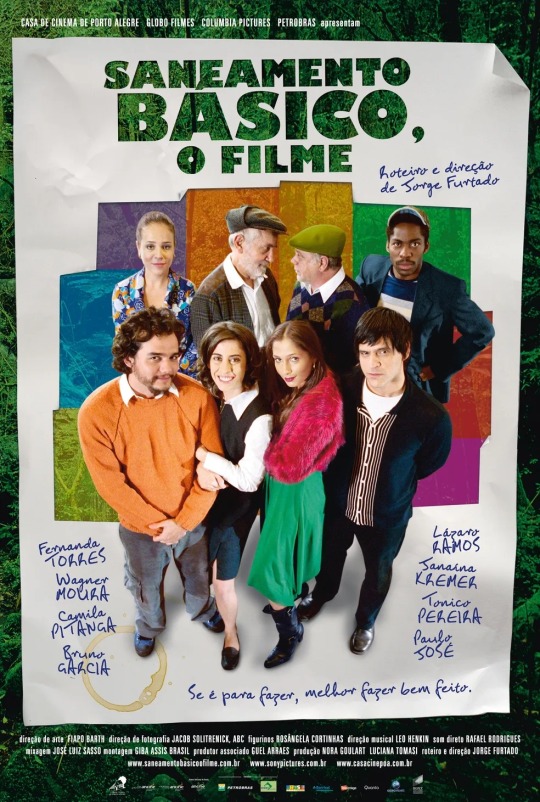
"Saneamento Básico, o filme" (idem) - cinema.
A mostra do CineSesc me pegou, mais um dela. Não vi esse filme do diretor Jorge Furtado no lançamento em 2007. Gosto dele em "Homem que copiava" e "Meu tio matou um cara". Assim é uma oportunidade de acompanhar melhor a filmografia do diretor. A premissa de usar uma verba cultural pra realizar uma obra da cidade me parece promissora.
depois de ver: quase nada funciona e o filme parece envelhecer rápido. tem boas tiradas, mas o dava pra perder um 20 minutos de projeção. uma pena, já que a idéia inicial é boa.
#Saneamento Básico o filme#cinema#Jorge Furtado#Fernanda Torres#Wagner Moura#Camila Pitanga#Bruno Garcia#Lázaro Ramos#Paulo José#Tonico Pereira#2007
2 notes
·
View notes
Text

#Liziero#Sao Paulo FC#Brazilian Serie A#Brazil#Brazilian footballers#Sao Paulo#Igor Matheus Liziero Pereira#SPFC#transparent png renders
0 notes
Text
"Zena & Amici" convida Rafa Gomes para jantar a quatro mãos
Carlos Bertolazzi e o chef carioca criam menu exclusivo harmonizado com vinhos italianos
Carlos Bertolazzi e o chef carioca criam menu exclusivo harmonizado com vinhos italianos O Zena, localizado na região do Jardins em São Paulo e comandado pelo empresário Dudu Pereira em parceria com o chef Carlos Bertolazzi, convida o renomado chef carioca Rafa Gomes – dos restaurantes Tiara, Itacoa e Tin Tin – para criação de menu a quatro mãos, servido em jantar exclusivo ‘Zena & Amici’, a ser…
#Carlos Bertolazzi#Dudu Pereira#evento#harmonização#Jantar#Rafa Gomes#são paulo#zena#Zena & Amici
0 notes
Text
Alessandro Martins é condenado por calúnia e ameaças contra presidente do Tribunal de Justiça do Maranhão
A pena deverá ser cumprida em regime inicial aberto, sem direito à substituição por penas alternativas.
A Justiça condenou o empresário Alessandro Martins de Oliveira a seis meses de reclusão e três anos, cinco meses e 24 dias de detenção, além do pagamento de 50 dias-multa, por crimes de calúnia, difamação e injúria contra o desembargador Paulo Sérgio Velten Pereira, presidente do Tribunal de Justiça do Maranhão. A pena deverá ser cumprida em regime inicial aberto, sem direito à substituição por…
#Alessandro Martins#Brasil#condenação#Grande Ilha#Maranhão#Paulo Sérgio Velten Pereira#TJMA#Vara Criminal de São Luís
0 notes
Text
Júlio Pereira - Fernandinho vai ó vinho (1976)
A estreia a solo de Júlio Pereira é uma "opereta-rock" cheia de grandes convidados e de um humor e uma ternura irresistíveis.
A estreia a solo de Júlio Pereira é uma “opereta-rock” cheia de grandes convidados e de um humor e uma ternura irresistíveis. Quando pensamos em Júlio Pereira vem-nos imediatamente à cabeça a imagem do músico de cabelo longo com o seu inevitável cavaquinho entre as mãos, navegando as águas da música popular portuguesa. Mas, no início da sua carreira, o rock era um dos seus grandes amores. De…
#carlos mendes#Fernando Tordo#Francisco Fanhais#Jorge Palma#José Afonso#José Jorge Letria#julio pereira#Música Popular Portuguesa#Paulo de Carvalho#sérgio godinho#Sheila Charlesworth#vitorino
0 notes
Text
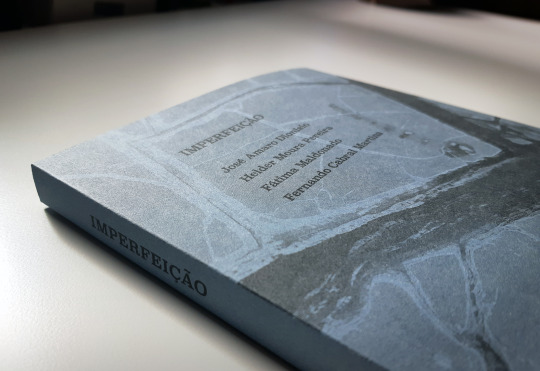
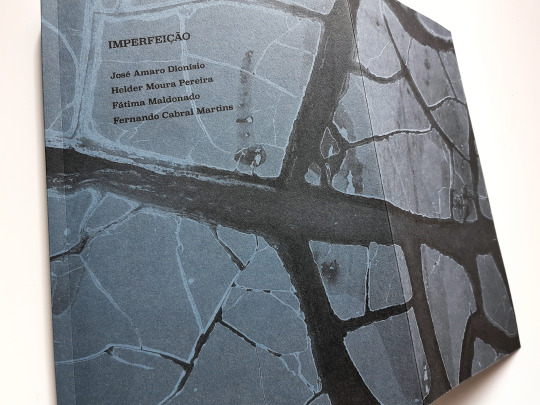
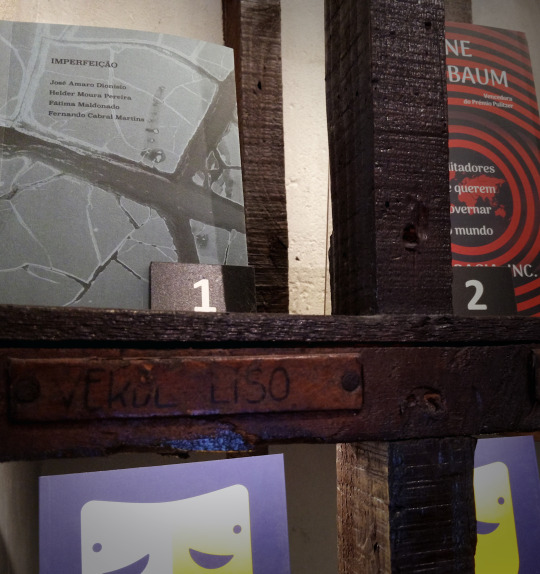
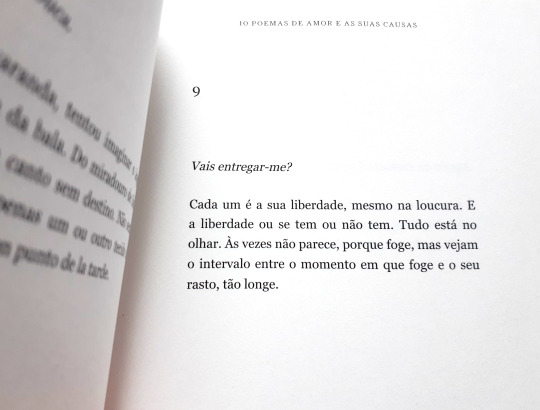
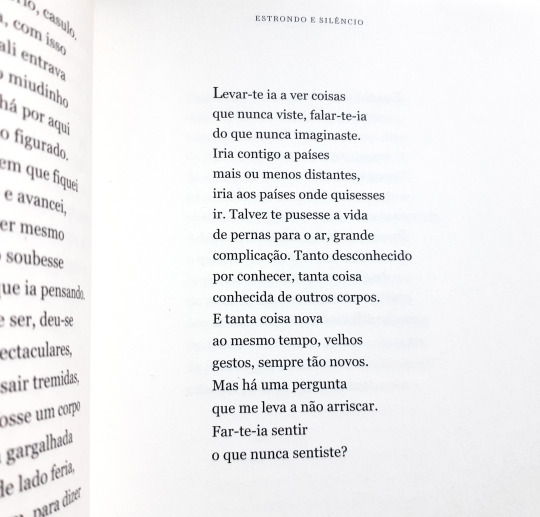
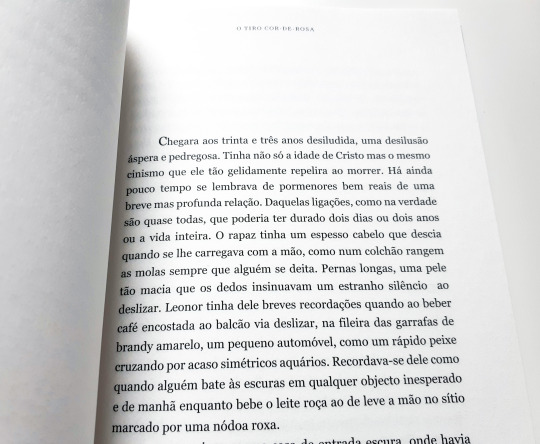
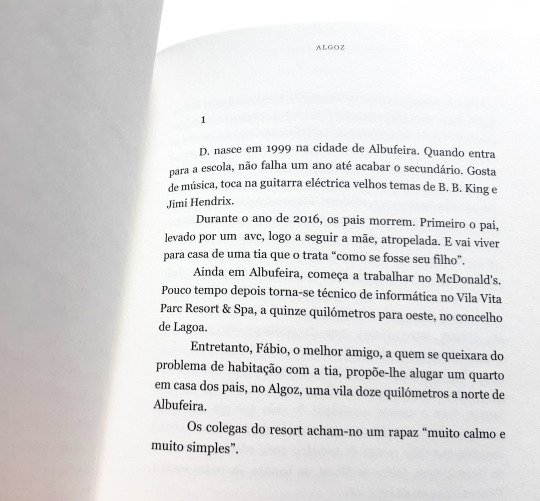
Almedina RATO
O livro IMPERFEIÇÃO, de José Amaro Dionísio, Helder Moura Pereira, Fátima Maldonado e Fernando Cabral Martins (Novembro, 2023), é uma das obras no top de vendas da livraria Almedina Rato (Lisboa), antecipando a próxima sessão do Clube de Leitura desta livraria, com curadoria de Paulo Faria. IMPERFEIÇÃO será lido/discutido no dia 24 de Outubro.
Do livro: https://livrosnaoedicoes.tumblr.com/post/734511220832468992/fora-de-colecção-imperfeição-poemastextos-josé
\\\ Pedidos via [email protected] /// https://naoedicoes.tumblr.com/livrarias
#clube de leitura#Almedina#Imperfeição#José Amaro Dionísio#Helder Moura Pereira#Fátima Maldonado#Fernando Cabral Martins#Fora de Colecção#livros#poesia#ficção#Paulo Faria
0 notes
Text
#spotify#podcast#451 MHz#Patti Smith#Letrux#literatura#história#Paulo Werneck#Paula Carvalho#Leticia Novaes#Portuguesa#Portugal#Djaimilia Pereira de Almeida#Luanda Lisboa Paraiso
1 note
·
View note
Text
James Rodriguez, Gabigol e Dudu, indesejados queridos
Luiz Antônio Prósperi – 22 julho (18h20) James Rodriguez não joga mais no São Paulo. Clube e jogador tratam da rescisão do contrato, válido até 2025. Gabigol tem prazo estipulado para deixar o Flamengo, dezembro de 2024. E Dudu espera jogar no Palmeiras pelo menos até o fim de 2025. Três astros. Indesejados por seus patrões e queridos por suas torcidas. A situação de James parece mais simples.…
#0000ff#008000#abel ferreira#Dudu#Flamengo#Gabigol#James Rodriguez#landin#Leila Pereira#Neymar#Palmeiras#São Paulo#zubeldia
0 notes
Text
Gringa Taiwanesa PASSOU pelos Estados Unidos e Alemanha mas quando CHEGOU no Brasil a coisa MUDOU 1.2
Gringa Taiwanesa PASSOU pelos Estados Unidos e Alemanha mas quando CHEGOU no Brasil a coisa MUDOU – Pereira Horácio Jr.. 13 abr 2024 Joy Jo-Hsuan: ‘Espero que mais pessoas viajem para o Brasil’ – Além do Português. 31 jan 2024 Joy é uma taiwanesa que mora em São Paulo há 1 ano e meio, e conta de sua vinda ao Brasil, as semelhanças entre os povos, e o desejo que mais pessoas viajem para o…

View On WordPress
#Equidade JustiçaSocial Solidariedade#a realidade dos povos indígenas no Brasil#bate papo com estrangeiros na cidade de São Paulo#Gringa Taiwanesa PASSOU pelos Estados Unidos e Alemanha mas quando CHEGOU no Brasil a coisa MUDOU - Pereira Horácio Jr.#histórias e culturas brasileiros#Joy Jo-Hsuan: &039;Espero que mais pessoas viajem para o Brasil&039; - Além do Português.#preconceitos e discriminação racial#Taiwan
0 notes
Text
Cachoeira: PSD está dividido sobre pré-candidatura de ex-prefeito
O ex-prefeito de Cachoeira, Fernando Antônio da Silva Pereira, conhecido como Tato Pereira, pode ser confirmado nesta semana que antecede o fim da janela partidária como nome da sigla para disputar a prefeitura municipal em outubro. A dúvida sobre a escolha do ex-gestor fica por conta da resistência do senador Otto Alencar ao nome dele, uma vez que, nas eleições de 2022, Tato apoiou ACM Neto…
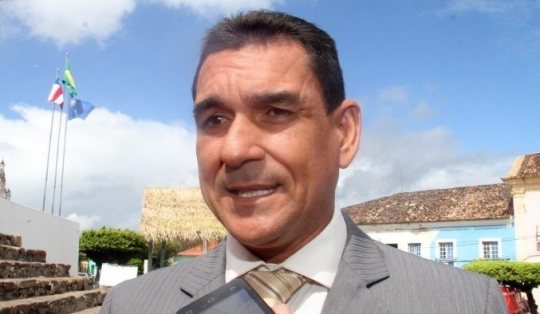
View On WordPress
#BNews#Cachoeira#eleição 2024#eleições municipais#Eliana Gonzaga#Otto Alencar#Paulo Magalhães#política#PSD#Tato Pereira
0 notes
Text
Alex Pereira biography: 13 things about UFC fighter born in São Paulo, Brazil
Alex Pereira is a Brazilian professional mixed martial artist and kickboxer nicknamed Poatan. He is 6’4″ tall and he competes in the middleweight and light heavyweight divisions. Alex Pereira

View On WordPress
0 notes
Text
An introduction to the (K)CIA in the Unification Church

▲ Pictured: The late Bo Hi Pak The Republic of Korea (South Korea) underwent a dramatic political transformation in the years following the Korean War. In 1961, General Park Chung Hee staged a coup d'état, overthrowing Syngman Rhee’s government and ushering in a new era of fascistic authoritarian rule. This period also saw the reorganization of the young but growing Unification Church by the newly formed government.
Moon’s church synthesized the theological and spiritual trends of his day, which were largely syncretistic, synthesizing elements of Christian apocalyptic narrative Korean shamanism and Confucianism. The Unification Church offered a seemingly pro-Korean ideology that appealed to many Koreans who were looking for a sense of national identity after years of Japanese occupation and a devastating war. This movement tapped into the popularity of Pentecostal and Holiness revivalism, which emphasized direct experience of the Holy Spirit and ecstatic religious practices.
In 1962, Kim Jong Pil, a close ally of General Park, was appointed head of the Korean Central Intelligence Agency (KCIA). Kim saw the potential of the Unification Church as a tool for political influence and reorganized it with the help of Bo Hi Pak, a KCIA agent who had previously served as a personal aide to General Park. The “reorganization” was designed to turn the Church into a political asset for the Park regime
Under the new leadership, the Unification Church was given access to government resources and allowed to expand its activities more freely. The Church's focus shifted towards political activities, such as promoting anti-communist propaganda in public schools and lobbying for government policies favorable to the Church's interests. Bo Hi Pak became a key figure in the Church soon after joining, serving as Moon's chief aide and helping to build the Church's connections to the government and military. Both Bo Hi Pak and Young Oon Kim recruited a number of military and intelligence agents into the organization, including Steve Kim (Kim Sang In) and Bud Han (Han Sang-kook).
Some notable figures associated with the Unification Church and US intelligence agencies include the already mentioned Bi Hak, Steve Kim, Bud Han, as well as Paul Perry, Juan Sanchis, Tom Ward, and a number of others. These individuals have been accused of engaging in covert operations, collecting intel on both fascist/right-wing and left-wing organizations, and working with the US government to further its interests.
#CIA#kcia#moonies#unification church#pentecostalism#religion#sun myung moon#kim sang in#sang in kim#bud han#Sang-Keuk Han#han sang-kook#paul perry#paulo-juarez pereira#juan sanchis#tom ward#counterinsurgency#anti-communism#intelligence agencies#US imperialism#republic of korea#park chung hee
0 notes